Another year ends, which means it’s time for another end-of-year roundup of the games I didn’t do full reviews for, as well as some approximate rankings because rankings are fun. Last year’s disclaimers still apply: this is all of the games I played in 2022 for long enough to have a serious opinion on, not all of the games that I played that were released in 2022; and also the rankings are highly subjective since they’re Literally Just My Opinion.
(Which is, of course, always correct.)
The Great
Also in this category: Pentiment, Elden Ring, God of War, Return to Monkey Island
Old World
Playing Old World is like suddenly finding yourself in a parallel universe, one where all of the big 4X innovations of the last 15 years — one unit per tile, unpacked cities, empire-wide resource pools, a Crusader Kings-lite character system — still happened, but they were actually done right. And by “right” I mean “with the same general design ethos as Civilization 4”, because this is a game from Soren Johnson’s Mohawk Games, and so it has some staggeringly good mechanical design. Everything flows into everything else in a very elegant way; it feels very different to the later Civilization games because there’s nothing that feels peripheral or bolted-on, and all of the mechanics are instead fully embedded into a wider system that needs to be considered as a whole in order to succeed at the game. This makes the experience of playing Old World powerfully satisfying, like finally eating a hearty 4X meal after years of picking at Firaxis’ bitty scraps. I was expecting to be turned off by the classical antiquity setting since I’ve played through the ancient age in Civilization approximately seven million times now and it’s the least interesting part of the game to me, but Old World’s take on it was so well-executed it still succeeded in drawing me in. The only flaw the game really has is that it doesn’t have the absurd variety of Civilization 6’s range of civilizations and strategies — Old World only has seven playable civilizations to choose from — but then that’s also its main strength since its comparative focus makes it a much more coherent game, and one I’ll be revisiting for years to come.
Vampire Survivors
Why has Vampire Survivors been so successful? It’s a £4 game that, when I picked it up at the start of the year, had a grand total of two levels populated with a mix of store-bought art and placeholder graphics. Even in this incredibly basic state it was fearsomely addictive, though; there’s something incredibly compulsive about piloting your character sprite around while it automatically fires off a collection of increasingly destructive weapons to mulch incoming hordes of enemies and hoovering up the XP crystals they leave behind, kind of like a psychotic Roomba. It’s a phenomenon that’s been written about at length elsewhere, but the hook for me was how refreshingly unconcerned Vampire Survivors was about gameplay “balance”; I feel that most other games would have gotten hung up on fiddling with drop rates and damage percentages in the mistaken belief that rationing out the player’s tools and toys is going to be fun for them, but Vampire Survivors says “Fuck it” and outright encourages you to put together the most OP build you possibly can, because it’s going to spawn so many enemies and so many projectiles that this primitive 2D autoshooter is going to start seriously chugging on the framerate in the later stages of the game. The developer understands precisely what is fun about the game and the Early Access period has been mostly about giving the player even more absurd combos to try out; it does have a shelf life because of this as there’ll be a point where you’ve seen “enough” and put the game down for a while, potentially for good, but Vampire Survivors is bonkers cheap even with the 1.0 price increase so you can’t really say you didn’t get your money’s worth.
Neon White
Teardown was a bit of a misfire with me, but I mentioned in my review that I really liked some parts of it, specifically the level that got you to plot a route through it that had line of sight to a series of targets that you had to shoot before the timer ran out. A few weeks later I played Neon White, which was an entire game of that. You’re a demon exterminator working to rid Heaven of 120 levels’ worth of diabolical incursions, and you do this by running very very fast through each level picking up guns and shooting them in the face. Each gun can be discarded for a one-shot special movement ability – dash, double-jump, firing yourself through the air on a ballistic trajectory — and the core of Neon White is figuring out new routes and sequencing of your gun/ability use that will let you shave a precious few fractions of a second off of your previous level time. Quicker times award shinier medals and there’s full Friends leaderboards integration if you want to get particularly brutally competitive. The movement is incredibly tight once you get used to it, and the level design is outstandingly refined with a ton of clever shortcuts available that make you feel like a genius each time you figure a new one out, and packed with so much variety that you’ll never get bored. If you’re not the sort of person who enjoys time trials then you’re probably not going to enjoy Neon White, but since I do happen to enjoy them it was very briefly on my GOTY shortlist. Only briefly, though, since the game is let down by some infuriating bossfights and the second-worst writing in a videogame this year1.
Roadwarden
A game that is not quite a text adventure or an RPG, Roadwarden instead combines the best aspects of both to produce one of the most pleasantly open-ended games of 2022. You’re a Roadwarden (sort of a D&D Ranger, except you can just indiscriminately murder the local wildlife if you want) who has been sent to scout out a remote peninsula teeming with hostile creatures, and who has to gather as much information about the country and its inhabitants as you can before your forty-day time limit is up. You pick up dozens of quests while you’re there, and there’s a mystery that spans the length of the game that you can try and solve if you want, but you don’t have to complete any of them as you can leave at any point after the twenty-day mark to report back to your merchant masters. This lets Roadwarden focus on exploration to a degree that most other RPGs cannot, as they’re shackled to a linear story with scripted progression; in Roadwarden it’s not taken for granted that you’ll find anything that’s not directly on the road as you don’t need to in order to finish the game, and so forging a path through the centre of the forest or venturing into a deep dark tunnel is genuinely tense and mysterious as you have next to no idea what you’ll discover down there. The monochrome illustrations that accompany the text are used to great effect here, too, as the maps of each location start out blank and gradually get filled in as you explore more and more of each village and dungeon. Roadwarden is a game about getting to know the landscape and the communities in it, and where it’s important to make friends so that you can gather all of the information required to uncover the peninsula’s deepest secrets. The initial sense of wonder that the game had wore off in the second half once I’d explored most of the map and had figured out how it all worked mechanically, but that first half was magical.
The Good
Also in this category: PowerWash Simulator, Hardspace Shipbreaker, Citizen Sleeper, Regiments, Expeditions Rome
The Case of the Golden Idol
Return of the Obra Dinn with less style, but also much less obtuseness. The Case of the Golden Idol presents you with twelve murder mysteries to solve involving an ancient golden idol of uncertain provenance. Each murder has you examining the murder scene and its immediate surroundings moments after the event in order to gather clues; these take the form of nouns and verbs that populate the lower half of the screen. Once you have hoovered up all of the clues you switch over to a second interface where you have to use the clue words to fill in the blanks on a description of the murder — these start out being simple “X killed Y because of the Z” descriptions, but quickly become far more complicated, and correctly solving a murder requires a full and complete understanding of who everyone at the murder scene is and their potential motivations. Case is a very solid puzzle game that’s mostly grounded in logic and is only held back a little by its art style, which is seemingly intentionally grotesque; I was put off by this for a while but was pleased to see that the few frames of animation each scene has lends it enough liveliness that it’s nowhere near as bad as it appears to be in screenshots. It has a short running time of just over three hours, but I’ll take a short puzzle game where all of the solutions make sense over one twice the length where I spend most of the additional time trying to figure out what’s going on inside the puzzle designer’s head.
Terra Invicta
Terra Invicta is utterly mad. The first full game from the developers of the Long War mod for XCOM, Terra Invicta absolutely would not have been made by anyone else. They would have taken one look at the concept and called it unworkable: it’s a game where you control a shadowy Council who takes over nations on a detailed recreation of the planet Earth so that you can use their resources to launch spaceships and fight off an alien invasion on a strategy layer that comprises the entire Solar System. And then on top of that when you encounter an alien fleet you drop into a tactical battle system that simulates everything with full Newtonian physics. Terra Invicta is a game where orbital trajectories and delta-V burns are accurately projected, where the armour penetration of a laser at a certain distance is calculated not by consulting some lookup table but by doing a Gaussian beam equation using the focal lens diameter and wavelength, and where the travel time of your fleets can be measured in years if you’re travelling to the outer solar system using a slower engine. It should be an unplayable mess, but while it is certainly messy it is also incredibly compelling if you’re at all into the idea of what it’s doing; in particular it has the first tech tree since Alpha Centauri that has successfully convinced me that it was a plausible map of the next 200 years of human progress2. Even disregarding the theme, which is laser-focused to appeal to me specifically and almost nobody else, there’s some genuinely good design to be found in the Earth and solar system layers — but unfortunately they don’t feed into one another well at all (the Earth layer becomes irrelevant once you get a good foothold in space) and the tactical battles are a disaster area since it turns out Newtonian physics are a real pain to manage. The greatest sin Terra Invicta commits, though, is that it doesn’t respect the player’s time. I greatly enjoyed the first 30-40 hours of the campaign that I played, even in spite of everything that the game did wrong. Unfortunately the campaign went on for an additional 30 hours past this point (for a total of 70), most of which was spent on the fastest speed setting waiting for fleets to arrive at the next planet. This makes Terra Invicta impossible to recommend, but I really can’t fault the developers for trying; it may be a mess, but it’s at least an ambitious one and hopefully one that others will learn from.
Final Fantasy 7
Prompted by my near-disastrous experience with the Remake (see below), I decided to pick up Final Fantasy 7 again for the first time in over two decades to see how well it held up. I’ve never thought as highly of it as everyone else seems to, so I was surprised to discover that the answer is “pretty damn well, actually”. It still underwhelms in comparison to its reputation, and the developers are clearly still coming to grips with the transition from 16-bit consoles to 32-bit consoles, and I do think that coming back to it in 2022 meant it suffered slightly from the game having been completely solved for a long, long time — it had absolutely none of the atmosphere of possibility and of discovery that enthralled me as a teenager. But it’s a solid JRPG nonetheless, especially with some of the more tasteful AI upscaling mods applied — this incidentally let me rediscover just how revolutionary the seamless transition from FMV cutscenes to interactive gameplay was back in the day, as the upscaled versions still look quite impressive and it’s easier to understand just how mindblowing it was to watch on a CRT television in 1997 when you’re not peering through a pixelated fog. But the most surprising thing about my replay of Final Fantasy 7 was how short it was; this game was legendary for being an epic adventure that consumed weeks of free time and yet I finished it in just 22 hours. This felt refreshingly quick and snappy by modern standards (especially compared to the Remake); I still wouldn’t put Final Fantasy 7 in the top tier of JRPGs, but at least it doesn’t waste your time.
Grounded
I hate quite a lot of what Grounded does. I hate the plant and insect-based aesthetic of all of the structures and equipment you can build. I hate the massive health bars on all of the enemies that turn combat into a battle of attrition. I hate that it doesn’t seem particularly interested in providing you ways of automating early-game tasks once you’ve mastered them, meaning there’s always the standard survival game chores around hunger and thirst to deal with before you can do anything interesting. And I hate that it’s now been over two decades since System Shock 2 and game developers still haven’t learned not to put equipment degradation mechanics into their games. Unusually, though, I’m willing to forgive almost all of that, because Grounded’s world design is excellent, and exploring its giant-sized back yard is a joy. It’s bright and colourful and full of things that would otherwise be mundane but are rendered interesting because of your shrunken stature; this is a game where gaining access to the picnic table and the sandbox is a big deal, as this opens up access to new materials that let you tackle new challenges and unlock even more new areas, as well as being genuinely different. There’s a great sense of progression and discovery that’s absent from a lot of other survival games; I’ll always be a bigger fan of fully authored survival game worlds than I am the procedurally-generated stuff, and Grounded is a great example as to why.
The Okay
Also in this category: Chaos Gate: Daemonhunters, Midnight Suns, Battlesector, Sniper Elite 5, Teardown
Metal Hellsinger
Possibly the closest thing I’ve played to Doom 2016 since Doom 2016, which is kind of weird because this is a rhythm shooter where you have to time your shots to the beat of the music for more damage and a higher score – but then boomer shooters always have had a particular kind of rhythm to them once you get into the groove, so making that an explicit requirement actually works quite well. Rhythm or no, Hellsinger’s shooting is extremely polished and I had a lot of fun with it for the three hours it took me to finish the game’s parsimoniously small collection of levels; your overall mileage with this game will vary dramatically based on how much you like heavy metal music (I personally have no affection for it but I’m also not hugely put off by the idea of an all-metal soundtrack), but what knocked Hellsinger down several pegs for me was that very little thought seemed to have been given to replayability. I was expecting all sorts of challenges, score attack modes and a far more coherent set of leaderboards that would get the most out of what’s on offer here, but instead you go through each level once and then there’s no real reason to do it again, so in spite of the excellent shooting the words that most come to mind when I think of Metal: Hellsinger are “missed opportunity”.
Disc Room
An interesting twist on bullet hell shooters. Disc Room puts you in control of a tiny man who is dumped into a room full of spinning, bouncing, razor-sharp discs. The discs gradually multiply in number and doors are all locked and there’s no way to open them, so he will eventually die, but this appears to be no real impediment to him as he has infinite lives, and surviving for a long enough period of time in each room opens the door to the next one. Disc Room gradually ratchets up the complexity, introducing different types of discs that will kill you faster and powers for your tiny man such as dash and bullet time that might keep you alive longer, but it never loses sight of that ruthlessly short core loop of spawn-die-instantly-repeat, which is made tolerable by the majority of its levels never asking much more of you than to survive for around ten seconds. Disc Room is polished and thoughtful — enough so that I completed it on Hard — but I feel it was undone by one major mistake in the design process: the disc spawns are random, and each restart will see them shooting off in wildly different directions to the previous run. This means that achieving a target time feels just as much a matter of rerolling spawns until you get a forgiving arrangement of discs as it does any skill on the player’s part. The random spawns introduce too much variance into a game where the high score leaderboards measure times down to a hundredth of a second, and so Disc Room had no real longevity with me; in other circumstances it’s a game where I’d chase better and better times or gun for the harder achievements, but I didn’t feel that pull at all with Disc Room.
Hitman 3
I don’t know why Hitman 3 left me so cold. I loved Hitman 2, and Hitman 3 is, in theory, more of the same. Its plot is substantially more overbearing and does encroach on the mission content rather too much, but the missions themselves aren’t put together any differently; with the exception of the murder mystery one — a misfiring concept that has nowhere near as much replay potential as the rest of the game — each of them would fit quite nicely into Hitman 2. And yet where I felt compelled to take Hitman 2’s levels apart to see what made them tick, the idea of doing so for Hitman 3’s Abu Dhabi level, or its rave level, simply made me feel exhausted. Whatever energy was powering Hitman 2 was somehow absent from the sequel, it’s not as funny (and when it tries to be funny it’s not as smart about it) and also there was no Sniper Assassin minigame this time, so I went through Hitman 3’s missions once and then never went back. Disappointing.
Warhammer 40,000: Darktide
I would like Darktide a lot more if Fatshark had actually finished it. Unfortunately its excellent shooting and melee combat (and outstanding soundtrack) are hobbled by a metagame that makes absolutely no damn sense whatsoever; it’s one of the worst examples of scattershot game design I’ve ever seen. The game (and Fatshark’s PR representatives) appear to think that constantly negging the player is a foolproof way of winning their hearts, incessantly referring to them as “rejects” and “varlets”. You get a message at the end of a level saying that you’ve unlocked the flamethrower. Great! But you can’t use the flamethrower until a flamethrower appears in the shop so that you can buy and equip it, and the shop inventory is randomly generated and only refreshes on the hour, and isn’t guaranteed to spawn a flamethrower when it does so it could potentially be days until you get to use it. There’s a set of ridiculously difficult achievements called Penances, some of which unlock the second most laughable set of cosmetics I’ve ever seen in a game3, and the rest of which give you an achievement score that does absolutely nothing. You collect crafting materials for no apparent reason, as the entire crafting interface was locked off until relatively recently because it wasn’t finished. And the range of levels and mission objectives on offer is incredibly basic — remember the wizard tower or the bell mission from Vermintide? There’s nothing like that here, as you’ll either be assassinating a dude, hacking into a thing, or collecting small boxes to put into a bigger box. They don’t even have memorable place names for their missions! It’s all “Manufactorum H-11B” or “Railway 37-F”. The generic zombie enemies you face are far less interesting than Vermintide’s hordes of ratmen, and worst of all — crime of all crimes — the loot rat has been removed from the game completely. Darktide has definitely succeeded in being a distinct thing from Vermintide, but it’s distinctly worse and not remotely the game I was hoping Fatshark would make.
Orb of Creation
Every year the same thing happens: I download an idle game from Steam, boot it up, and then suddenly it’s 12 hours later and my consciousness is only coming back down to earth because I haven’t eaten anything since breakfast. Orb of Creation is better-constructed than most — in fact it’s almost unfair to call it an idle game, since it wants you to be constantly thinking about where you spend all of the resources you accrue and it gives you a lot of places to spend them. The gimmick this time around is that you’re a mage trying to rebuild reality from nothing, and so you start off with one-shot spells (that you can alter with a host of modifying runes) before progressing on to building passive resource generators and then using an alchemy lab to transmute elements into one another. Even in its Early Access state there’s a very long tech tree to climb up and trying to balance my income via transmutation was a much more engaging problem than most idle games present me with, but the same exponentially scaling formula is present across all of them meaning that they’re ultimately just different coloured numbers, and so Orb of Creation was still unable to avoid the ultimate fate of all such games — which is that I come out of that 12 hour fugue state feeling like I could have used the time far more constructively and uninstall it to protect myself..
Dusk
Dusk was one of the first of the new wave of boomer shooters that have been steadily releasing over the last five years. I bought Dusk because it has an astonishingly high rating of 97% “Overwhelmingly Positive” on Steam, but ended up being slightly underwhelmed because of that. Dusk is solid and competent with some imaginative level design, the sort of thing I would have expected a talented Half-Life modder (what Dusk most reminds me of is classic Half-Life mod They Hunger) to put out a couple of decades ago despite it looking and playing more like Quake. The Lovecraft influences are extremely strong here, but I feel that the Quake aesthetic was the wrong thing for what Dusk was trying to do; it pulls off some wonderfully atmospheric visuals in spite of that, but then the enemies you fight (and the weapons you shoot them with) are all made up of about sixteen polygons each, and that’s not quite enough to evoke the feeling of unknowable horror that’s supposed to epitomise Lovecraft. Mostly they are just FPS baddies, and the vast amount of thought that has been put into the environments just doesn’t count for much when the action that happens within them is so incredibly average. I think it would have been better if I’d played Dusk when it came out in 2017 before I had anything contemporary to compare it with instead of now, in 2022, when the boomer shooter revival is in full swing and there are several competitors that meet or exceed Dusk’s standards. Also, I did replay the original Quake last year and it predictably blows Dusk out of the water. If you’re in the mood for a modern boomer shooter you could certainly do worse than Dusk — but then again you could certainly do better too.
Prodeus
Speaking of competitors, Prodeus is a much newer example of the boomer shooter which came out of Early Access this year. Its general aesthetic and gameplay style is more Doom than Quake, albeit a Doom with much fancier textures; think of a Doom monster and there’ll be a barely-disguised ripoff of it somewhere in Prodeus, complete with a pixelated filter over it that is supposed to make it look like a Doom monster sprite, but which mostly serves to turn it into a blurry, indistinct mess and which I switched off halfway through the game. (I did at least appreciate that Prodeus let me switch it off considering how invested it appeared to be in the idea.) Even then, though, all I could think of is that it was an astonishingly bad idea to draw such direct comparisons to the outstandingly characterful spritework of Doom when Prodeus’s own visual aesthetic is such a bland melange of nothing. The shooting is, again, okay — Prodeus has an excellent shotgun and satisfying gore splatter when you use it, and gets an extremely long way on that alone — but the game waits until the last two hours to start throwing levels at you that aren’t just a collection of corridors and tunnels, and by that point it was far too late to recover; finishing Prodeus wasn’t at all satisfying, and I mostly just shrugged and moved on to the next thing. Prodeus isn’t exactly bad, but also I’d much rather play Dusk than Prodeus, which considering what I just said about Dusk also says a lot about Prodeus.
Rainbow Six: Raven Shield
I replayed this because I wanted to do a full-length post about it, but it turns out that Raven Shield has not weathered the last two decades all that well. It’s the most fully-featured of the original Rainbow Six trilogy — before the series kicked its thoughtful tactical side to the curb in Vegas and was later resurrected into an esport in Siege — and contains many important innovations like a 3D camera in the planning segment that gives you some idea of where your squad will actually be going, the ability to open doors incrementally with mousewheel (allowing you to open them up a crack, toss in a flashbang, and then boot the thing down after it goes off), and fully-modelled weapons in first-person view instead of just asking the player to use their imagination. The campaign levels are a serious letdown, however, as the majority of them are set in comparatively dull environments (an industrial fuel facility! A meat packing plant! A garage!) and the second-generation Unreal engine they’re running on has arguably aged worse than the first one. To my great surprise I also found myself running out of patience with the planning segments; I’ve long considered them to be the biggest strength of the first three games, but they’re painful to interact with in 2022 and I found myself pining for in-mission squad orders that later games such as Brothers in Arms and SWAT 4 introduced. Raven Shield is still respectable and the online mode was a hoot before Ubisoft shut it down, but if God came down from heaven and granted my wish for a modern Rainbow Six game in the “old” style I think it would look much more like SWAT 4 than it does Raven Shield.
Drainus
I picked this up on a whim after seeing Eurogamer give it a Recommended, and to be fair to Eurogamer Drainus is a mostly-enjoyable side-scrolling shoot ‘em up with a couple of decent ideas. You collect powerups to add weapons onto your ship, but the powerups are also your health bar; every time you get hit a weapon falls off, and if you get reduced to zero weapons the ship blows up. There’s a lot of ship customisation available and an Ikaruga-style energy shield that you can turn on to fly through purple bullets and energy beams, while avoiding the red ones which will always hurt you. It’s never less than competent, but unfortunately Drainus has two significant flaws. First is that, well, it’s called Drainus, which is a portmanteau of the words “drain” and “anus”, neither of which are particularly pleasant concepts to think about. Second, and more substantively, is that by the standards of classic shooters Drainus is incredibly easy. I completed the whole thing on my first go in one sitting with no continues, which took a little under two hours, and that’s just not what I’m looking for out of a shooter. Perhaps I have been spoiled by Ikaruga and Cho Ren Sha 68k, but what I want from one of these games is a gradual feeling of mastery as I learn the boss attack patterns and get slightly further in each time4, and Drainus most definitely was not that.
Paradise Killer
This was a little bit of a disappointment given the rave reviews I’ve seen for it, but also I’d forgotten it existed before it came out on Game Pass so it wasn’t too much of one. Paradise Killer is a murder mystery walking simulator/visual novel thing set on a bizarre island society that’s basically a sunny resort paradise run by a Lovecraftian cult, where you spend a few hours running around gathering clues and then bring everyone to court at the end in the game’s version of a Poirot parlour reveal. In the plus column, Paradise Killer has boomy splashes of imagination that I don’t often see outside of comic books and a nice visual style where you’re running around a 3D world populated by 2D cardboard cutouts of the various characters; this won’t be for everyone and sometimes isn’t for me (it infuriated me in Heaven’s Vault) but in this case reminded me pleasantly of Pathways into Darkness. In the minus column, it has basically everything else: it overwhelms you with information at the start, spaffing eight or nine murder suspects at you who all have nonsense names like Phallic Disaster; the character movement, while fast, is also heavy and awkward; and it has way too many collectibles that try and leverage this bad movement system in order to retrieve them. Also I was genuinely disappointed to discover the much-vaunted soundtrack is basically just a vaporwave version of the Ceefax music. Still, it at least includes modern quality of life features like “letting me skip through text as fast as I can read it”, which is a big factor in the game not becoming tiresome and is enough to place Paradise Killer significantly higher than certain other critically-acclaimed visual novels you’ll find lurking further down this list.
Stacklands
As the name implies, Stacklands is a light strategy game that’s based entirely on stacking cards one on top of another — put a villager card on top of a Rock card and they’ll mine Stone cards from it, the Stone cards can be stacked with Wood and a Stick card to build a House, and then if you put two Villagers inside the House they’ll create a Baby who will eventually mature into another Villager. Stacklands is basically just a less structured version of a worker placement game such as Agricola, which is fortunate for Stacklands because I really like Agricola and I might not have been inclined to put up with its bullshit otherwise. One sizeable problem with it is that it’s opted for a Cultist Simulator-esque open playspace into which you throw all of your cards with the game doing absolutely sod all to help you organise them, and it’s also got the same proliferation of card-spawning timers that all but ensure you’re going to be staring at a hellish mess of cards thirty minutes into a game. However, my main objection is that it’s paced all wrong; I played two games of Stacklands, and after the end of the second game I’d been playing for just over two hours and had seen everything there was to see in the game. I have no objection to the overall length since it’s only four quid, but I would have preferred much shorter gameplay loops — if I’d played eight fifteen-minute games where I refined my strategy instead of one massive two-hour one I think I’d have come away from it feeling a bit more satisfied than I did getting to the end of that second game and thinking “is that it?”
PowerSlave Exhumed
Night Dive seem to have hit the bottom of the barrel for their ‘90s shooter remasters. Look, we’ve remastered Turok! Yes, fantastic. We’ve remastered Blood! Wonderful. We’ve remastered… Sin? Really? Shadowman?!? This culminated in the release of PowerSlave Exhumed, a game I’m fairly sure I had never heard of prior to Night Dive remastering it. I found this impressive considering “‘90s PC games” is the one topic of my knowledge I’d point to as being genuinely encyclopaedic, so that’s one reason I picked it up. The other reason is that PowerSlave is an attempt to fuse Metroid-esque mobility-based progression with a shooter, so throughout the game you’re picking up abilities like a high jump, or a glide, or the ability to walk on acid or lava, and this opens up previously inaccessible parts of levels and new routes through the game. It’s an unusual combination — in fact it’s so unusual that the mobility parts of PowerSlave and the level design that leveraged them still felt fresh and new 26 years after the game originally came out. Unfortunately the rest of PowerSlave has aged terribly, with awful combat and a too-large player hitbox that’s the same size as the screen, which makes the level designers’ overfondness of instakill laser tripwires that gib you the moment you touch them particularly sadistic. The technology and systems thinking also fails to match the game’s ambition; this is a game designed to run on Playstations and Saturns so it can’t persistently track player progress, meaning you have to play through each level you revisit from the beginning, and that is particularly awkward considering PowerSlave abides by the Doom paradigm of making you collect red/blue/yellow keys in sequence to progress through a level. It’s an interesting historical curio, but no more than that.
Final Fantasy 7 Remake
A remake of the first chapter of the seminal 1997 Playstation classic, playing Final Fantasy 7: Remake is indeed like stepping back through time… to 2008, when all of its linear level design and terrible, terrible plot-contrived writing wouldn’t have stood out at all because everyone was doing it. Remake was released in 2020, though, so it has no excuse. The original Final Fantasy 7 committed many of the same crimes, but got away with them because it was genuinely groundbreaking in a few areas and because it was a lot of people’s first experience of a console RPG. 25 years later I’m genuinely at a loss as to why nearly everything about the Remake feels so incredibly dated — with the possible exception of the combat and materia systems, which are merely heavily flawed. Limiting the game to the first section in Midgar was a huge mistake as it means Remake loses the thing I most associate with Final Fantasy games — an expansive world map — and I just spent the entire game being railroaded through slums and sewers and scrapyards while periodically stopping to engage in mediocre brawler gameplay. In exchange for the narrowed scope Remake is supposed to trade heavily on lengthy cutscenes and expanded character work compared to the original, except there’s so much unnecessary padding in here that what it reminds me of, more than anything else, is another example of an original story that was chopped up into multiple instalments to sell more copies: Peter Jackson’s Hobbit trilogy. On the strength of Remake I am actively going to avoid Rebirth, and in fact the only thing stopping Remake itself from dropping into the truly Shit Tier games is the Honeybee Inn dance segment.
The Really Not Worth My Time
Also in this category: Lost Ark, Ace Combat 7, Chinatown Detective Agency
Total War: Warhammer 3
An unwelcome return to their Rome 2 form for Creative Assembly, and a disappointing one too given how much I enjoyed the first two Total Warhammer games. Warhammer 3 released as a buggy, disjointed mess where basic game mechanics such as unit movement had been changed for no good reason and minor settlement battles had gone from tedious, to downright insufferable. (This is a big problem because the AI loves to hide behind its walls and so 95% of the battles you fight in a Total Warhammer game are minor settlement battles.) The thing that I could not get over was loading up my first battle and sending in my daemon prince and his horde of gribblies to dice some unfortunate Empire soldiers… only for the two sides to not actually engage and instead just rub themselves against one another in a mildly unsettling fashion. I couldn’t believe I’d paid nearly fifty quid for yet another game that was broken to the point that it fundamentally didn’t work. I understand that they’ve spent time patching the game so that it’s almost playable now, but since the Total Warhammer team has now succumbed to the same inept project management that broke so many of their other titles Creative Assembly have lost me as a customer unless they do, like, Fall of the Samurai 2 or something.
Tactics Ogre Reborn
I’m sure Tactics Ogre was hot shit in 1995, but the problem with releasing a remaster of a 27 year old game is that the tactical strategy genre hasn’t exactly been dormant in that time and everyone else has taken the best of what it did and improved upon it dramatically. Playing Tactics Ogre in 2022, it just feels way too basic. There’s a massively overengineered class and equipment system that you’ll never understand without spending hours reading a guide, but then when you get into an actual fight you discover that its combat mechanics are laughably simple by comparison: spend turn after turn moving your ponderously slow troops into position, and then when they finally get into melee range you just hit the enemy until they die, remembering to heal as appropriate. There’s no zones of control so the enemy can (for which you can read “will”) just run past your melee line to engage your mages and healers in the back. What little challenge the game has arises from the fact that the enemy troops will always start in a massively favourable position compared to yours — a favourite trick the game has is making you climb a mountain for ten turns while their archers take potshots at you — and I simply don’t have the patience for that any more. I think the reason Tactics Ogre is fondly remembered is because it’s one of the first examples of real branching narrative in a game, but coming to it in 2022 it just reads like somebody trying to do Game of Thrones a year before the first book came out — this is not particularly Tactics Ogre’s fault, but I’m also extremely tired of this kind of gratuitously dark fantasy, and so I dropped Tactics Ogre shortly after it asked me to commit my first massacre.
Serious Sam 4
When I think Serious Sam, I think “backpedalling away from hordes of enemies in gorgeous environments while I blast them with a selection of extremely large guns”. It’s a simple concept but one which Serious Sam did extremely well. It does not need a large supporting cast of tedious characters who have models and animations straight out of one of those increasingly numerous 3D porn games infesting Steam. It does not need every mission to start and end with a five minute cutscene where these Blender models exchange the most tedious and cringeworthy dialogue I’ve experienced since the “authentic” CIA operator chatter from Ghost Recon: Wildlands. It does not need incredibly simplistic and bland level layouts consisting of a series of boxes with scenery that’s mostly copy-pasted in from Serious Sam 3, and it does not need the level designers to try and outwit the player by constantly spawning things behind them instead of in front of them, and it absolutely, definitely, does not need a reload button. And yet Serious Sam 4 chose to include all of these things, and packaged them up in an engine with terrible performance and which has the longest loading times I’ve seen outside of a Frostbite game. I was secretly quite glad when I was halfway through the story and the Game Pass app decided to corrupt the game install, presenting me with the choice of either redownloading all 50 gigabytes of it so that I could continue, or doing literally anything else with my time.
Guardians of the Galaxy
I honestly don’t know what I was expecting. Guardians of the Galaxy had not one, but two powerful curses laid upon it before it even released: it’s a videogame trying to leverage the hyper-popular MCU, nearly all of which have crashed and burned unless they happened to star somebody whose name ended with iderman; and it’s been developed by serial videogame criminals Eidos Montreal, who have both Thief 2014 and Shadow of the Tomb Raider on their rap sheet. I did see several people referring to it as a potential GOTY 2021 in spite of this, so when it turned up on Game Pass I duly downloaded and played through it just to see what they were talking about — only to discover that Guardians of the Galaxy is exactly what I thought it would be: a painfully generic action game straight out of 2009, that thinks it can get away with stringing 15 consecutive combat encounters against the same three types of enemy together as long as it bookends them with some cutscenes and funny writing. I laughed despairingly when I got to the final “boss” and it was just a series of the same combat encounters I’d been fighting all game; Guardians is so creatively bankrupt that it resurrects instant-death quicktime events, for god’s sake, something I thought — I hoped — I’d seen the last of a decade ago. It does avoid the “We’ve captured their stunt doubles!” feeling I got when playing Avengers, but that’s about the only positive thing I’ll say about it. Outside of its cutscenes Guardians of the Galaxy is one of the most boring and repetitive games I’ve had the misfortune to play in recent years, and I couldn’t wait for it to be over.
The Great Ace Attorney
I have quite a high opinion of the original Phoenix Wright trilogy of visual novels. Said high opinion is based in part on never having replayed them since I went through them the first time in 2006, as I suspect they’d drive me up the wall if I went back to them today. This suspicion was borne out by my experience with The Great Ace Attorney, which is a step-for-step retread of the first Phoenix Wright game except set a full century earlier. The main character is a clone of Phoenix (I think he’s supposed to be his ancestor) and the other Phoenix Wright character archetypes all here — the worldly and assured mentor lawyer who helps you through the first case before dying in the second one, the prickly-yet-honourable nemesis prosecutor, and the young female assistant who is mostly there to stretch out the game’s length by recapping at great length events that happened only five minutes ago in-game. This was a winning combination 15 years ago so I did at least get on better with GAA than I did the execrable Apollo Justice, but my god, I cannot believe I ever had the patience to scroll through this much text one. line. at a time. I read really really fast and was paging through each line pretty much as quickly as I could make it render, and it still took me 18 hours to get through all five cases; given that the game had completely exhausted my goodwill by the start of case number four thanks to its insistence on repeating every description of every event in the game three or four times for the particularly hard-of-thinking, it’s hardly surprising that I came away from Great Ace Attorney with a profoundly unfavourable opinion of it. Perhaps it works better if you play it on a 3DS and chip away at it a bit at a time over the course of a month on your daily commute, but it’s definitely not a game to be played in large chunks on a PC.
The Great Ace Attorney 2: Resolve
I actually liked this a little better than the first game, but I’m sticking it down here because they’re essentially two halves of one bigger game. This fact is painfully obvious when you consider how much Resolve recycles from GAA; there is a grand total of one new character and one new scene in the first two cases of Resolve, with everything else being a re-use of something from game 1. As I was already heartily sick of a lot of these characters (and their sodding animations, which are repeated over and over again to the point where the shameless padding of the game’s running time can no longer be denied) this did not do a great deal to endear Resolve to me and ensured that it felt even slower than GAA despite being a couple of hours shorter. However the quality upticked sharply for the last two cases; this is mostly because they’re yet another direct retread of two cases from the original Phoenix Wright trilogy, but since the only thing GAA had offered to really hook me up until this point was its unexpectedly good parody of Sherlock Holmes I wasn’t about to complain. I still don’t know why people are so positive about the Great Ace Attorney duology, though. Yes, they’re a better experience than Apollo Justice, but so is root canal.
————————————
- Beaten by Hardspace Shipbreaker, and only because Neon White actually lets you skip the dialogue. They’ve got Steve Blum in to do the voice of the main character so I think Neon White was supposed to be an homage to terrible mid-90s anime, except they ended up making actually terrible mid-90s anime. ↩
- Terra Invicta takes place over a few decades rather than two centuries, but this accelerated timescale is excused on the basis that an alien invasion can focus the mind wonderfully. ↩
- First place goes to Fallen Order’s poncho colouring and tiny lightsaber attachments. ↩
- It does occur to me that shoot ‘em ups were doing this kind of thing extremely well long before Dark Souls ever burst onto the scene. ↩


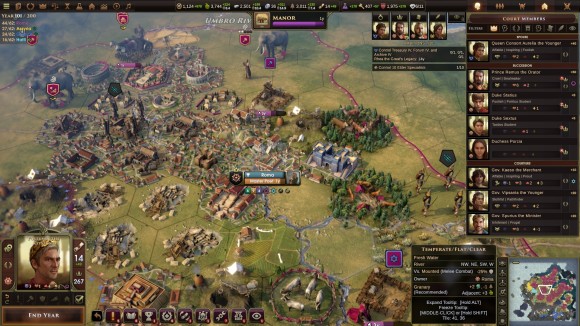
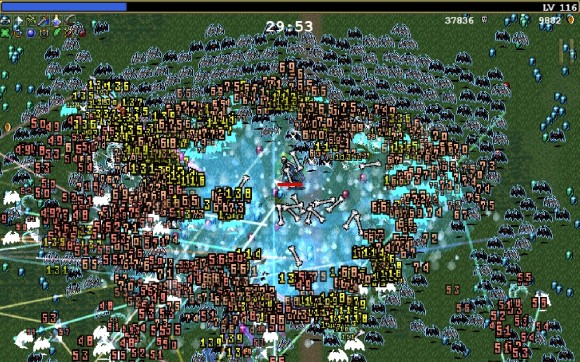
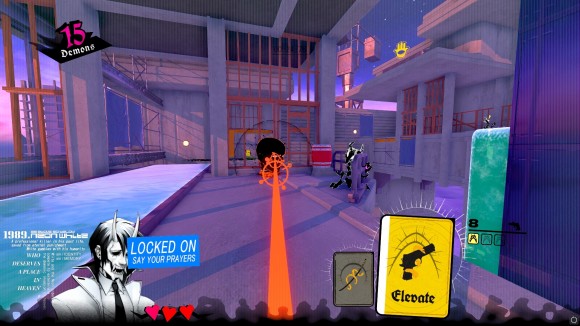
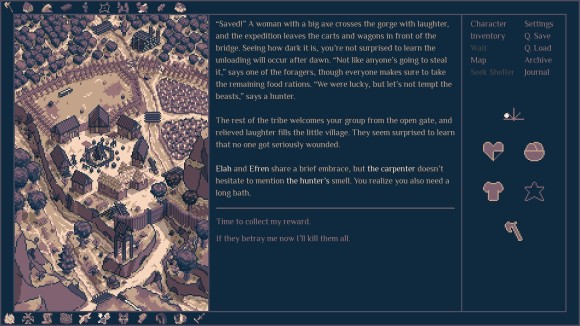
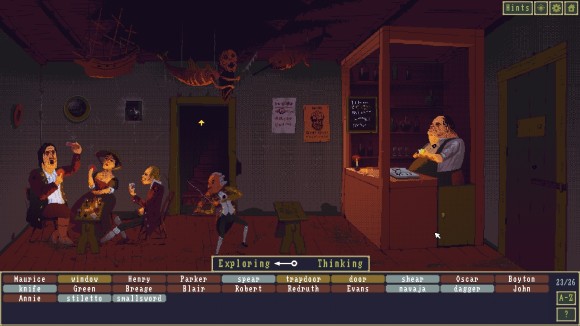
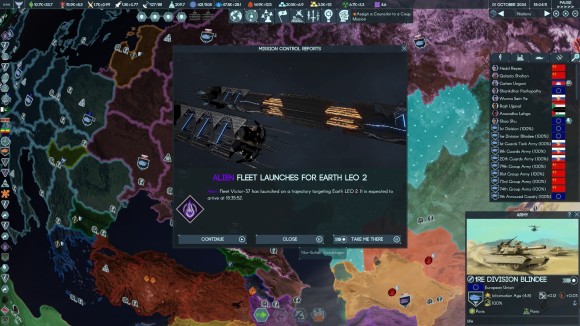
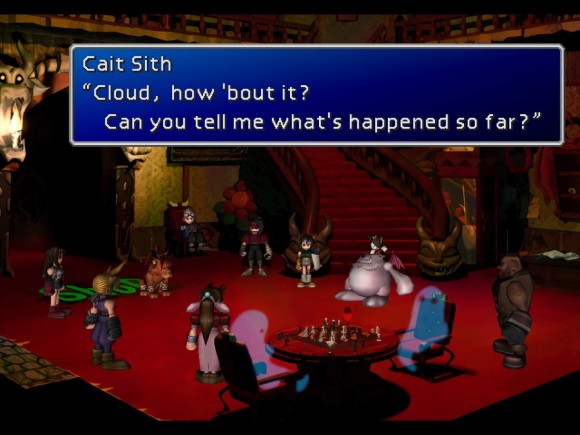
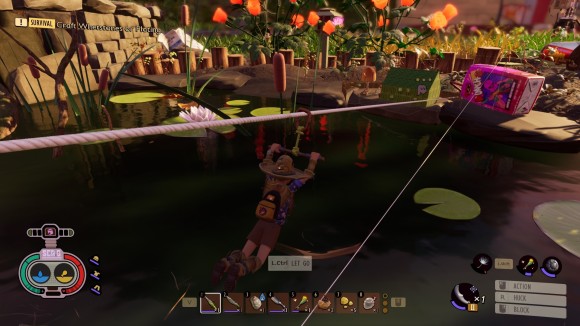
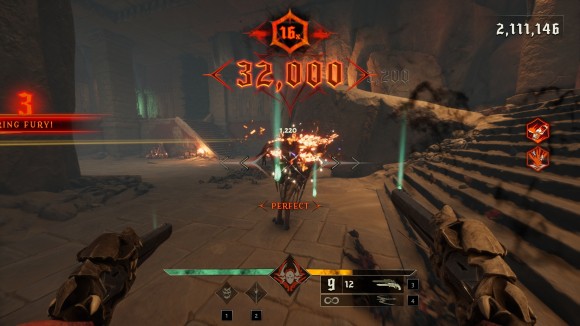
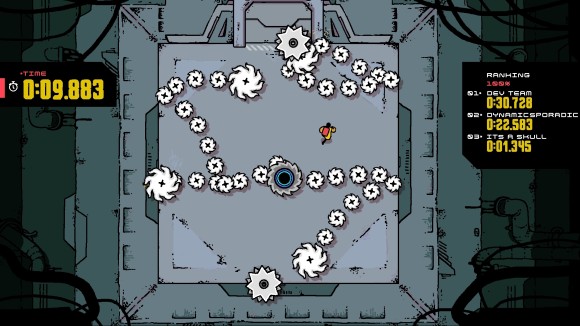
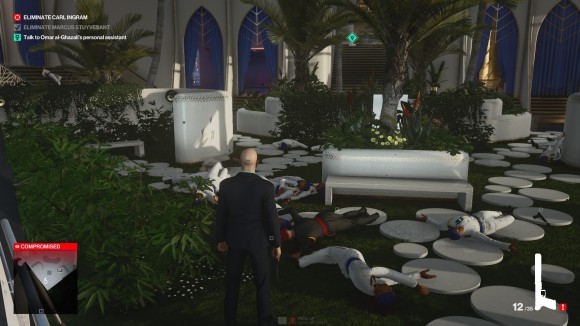
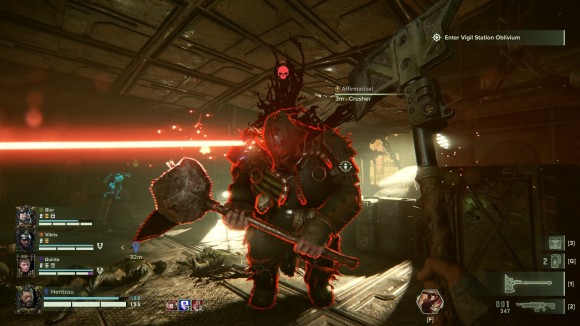
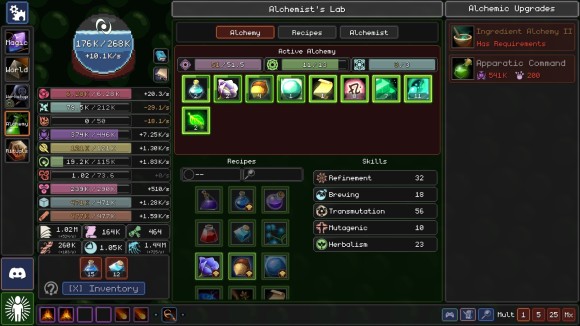
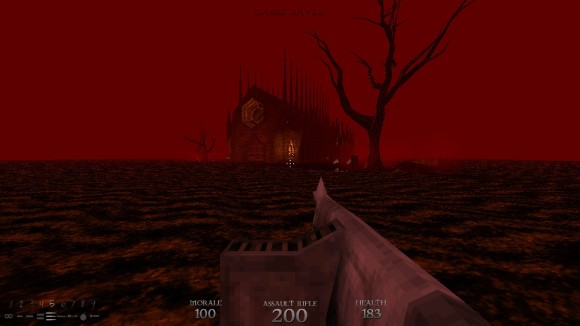
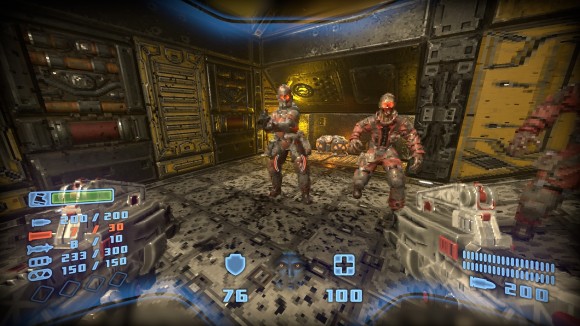
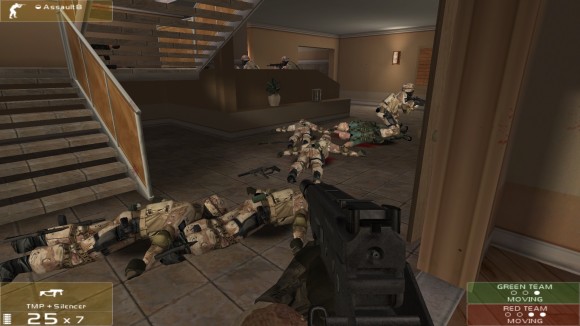
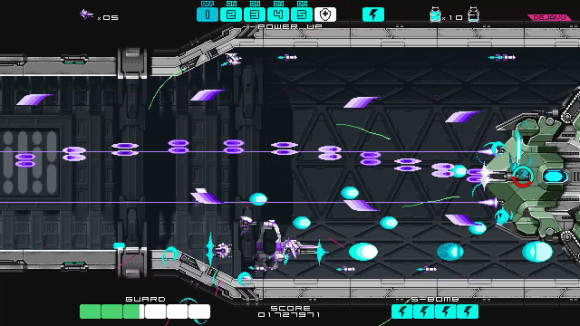
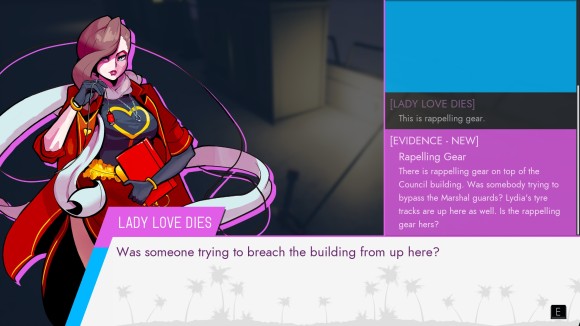
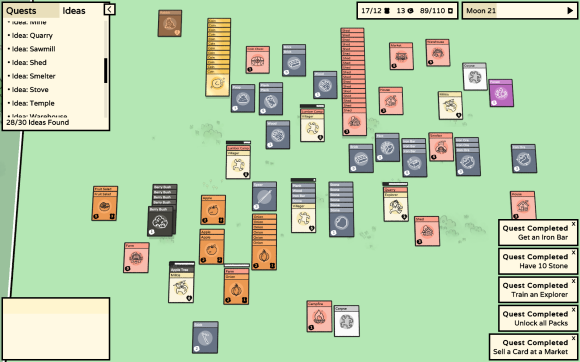
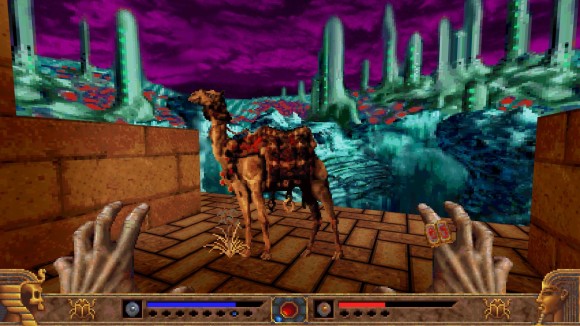
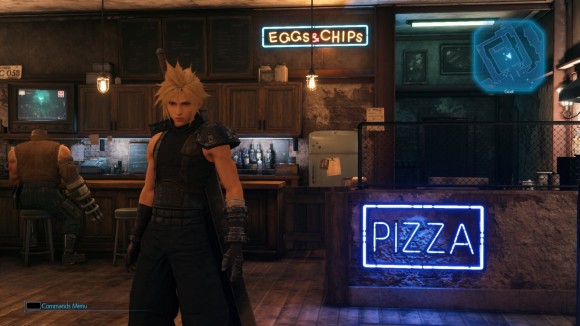
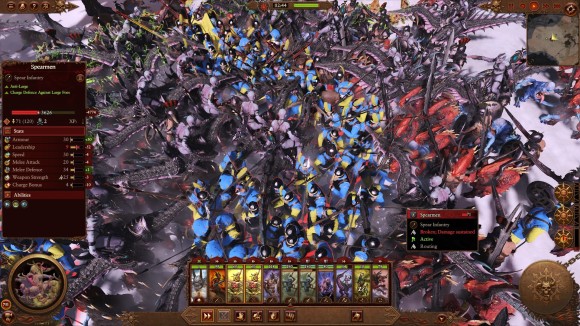
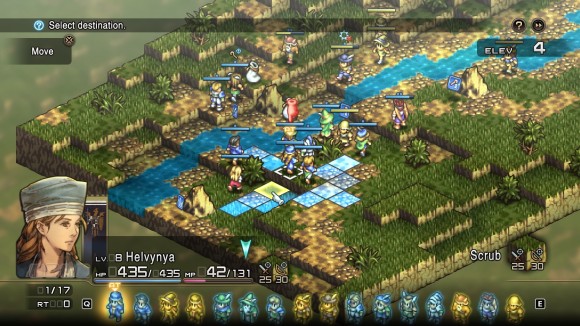
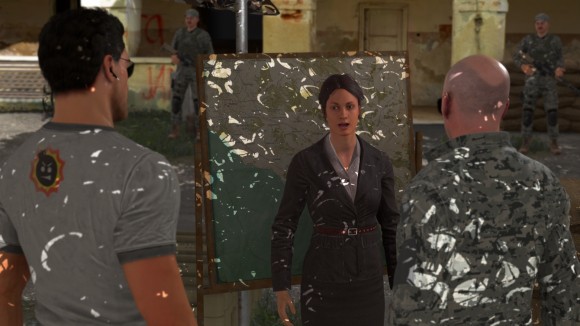
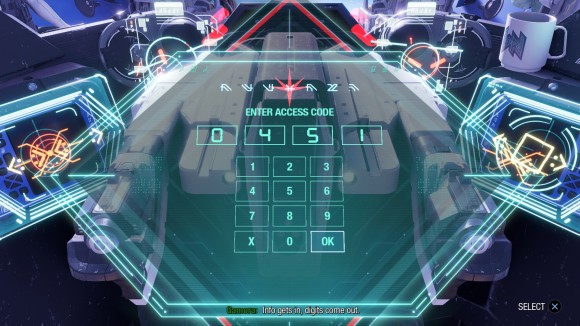

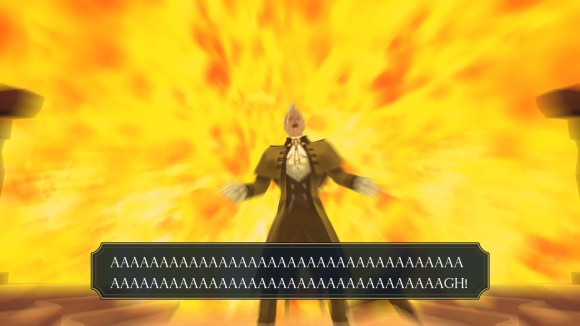
Woah, some volcanic hot takes here. You found Tactics Ogre *too easy?* You didn’t see that knights do indeed have an area of control ability? I like Tactics Ogre because it’s literally the only other SRPG I’ve played that feels as good as Final Fantasy Tactics, and I’d love to hear recommendations for other games in the genre that are remotely as good.
Total Warhammer 3 has indeed been patched up significantly, and I think it’s worth revisiting. I don’t think it was in quite as bad a shape as Rome 2 on launch, but a lot of its most serious issues were design choices and not bugs, and the team that has taken over maintenance had to pull double duty in rolling out a really fantastic Chaos Warriors rework and rolling back most of the siege rework. I’m cautiously optimistic for the game’s future, but whatever is going on with the main team at Creative Assembly really needs to be addressed.
I don’t know what to say about your Hitman 3 take. I didn’t like the secret lab level, since it ends by forcing you to deal with combat in a game that is not at all about combat, but I thought it was great overall. The murder mystery maybe doesn’t have a ton of replay value (although there are multiple ways to solve the case) but it’s not the only storyline in the mansion. I haven’t done it myself, but I imagine you could leave the detective to his job and watch it all unfold and maybe even find new solutions as an observer.
Anyway, a good, thought-provoking list, as always. I picked up a number of these games in end of year sales, so I’ll have to give them a whirl sometime and see what I think.
If you want FF Tactics style game there’s always Fell Seal. It very much aims to be FFT. I didn’t like the art style and it felt like it could use some variety though.
Huh, I played FF7 after FF7Remake this year too and I have very similar feelings. Remake is gorgeous but it somehow feels cheap with forced backtracking and filler side quest chapters. It’s like they took out everything cool and unique out of FF7 and playing the original reminded me of it all. FF7 is fast-paced epic adventure. All the dungeons are 10-20 minutes rides with a specific theme, the combat allows for a lot of customization. Remake has some dungeon ideas like construct your own boss, but then the pacing is killed by sewer levels and ghosts out of nowhere. And if you want any challenging fights where you actually have to pay attention to combat system – you can only get that from a “simulation” that is all contained in pre-final boss sequence. And the story. These ghosts. It’s so amature.
Vampire Survivors make me think I experience the Mandela effect and Crimsonland never really existed. I do understand that there’s a huge difference in the fact that you can’t aim directly in VS but it’s still surprisingly similar.
I love these snipplets. Good summary of each game!
About Ace Attorney series: for some reasons I decided to refresh my memory of them this year, the remastered originals. I have little memory of anything beyond the first couple of cases and I never played the bonus case that was added in Nintendo DS release. I was exhausted after playing the first couple of cases even though it was spread out through weeks. Then I realized it felt horrible when I used mouse specifically. Gamepad is much, much more bearable somehow even if you still have to constantly press a button to speed up text.
I wanted to check out that chronicles game and there I discovered that there’s still no option for instant text. It blows my mind. It’s a deliberate crime.
How… Have you still not played cyberpunk 2077?? :->
Hope you are well, miss your writing.
+1 on this, I keep checking back and being sad and slightly concerned that there’s nothing new. Hope all is OK.
Yep me too. Hope everything is OK and we get to read some more of your excellent articles soon.
If you’re looking for a good shoot-em-up I highly recommend you try Zero Ranger if you haven’t already.
It’s not just a competent entry, but I believe it genuinely pushes the genre forward. Should be a good palette cleanser after Drainus.